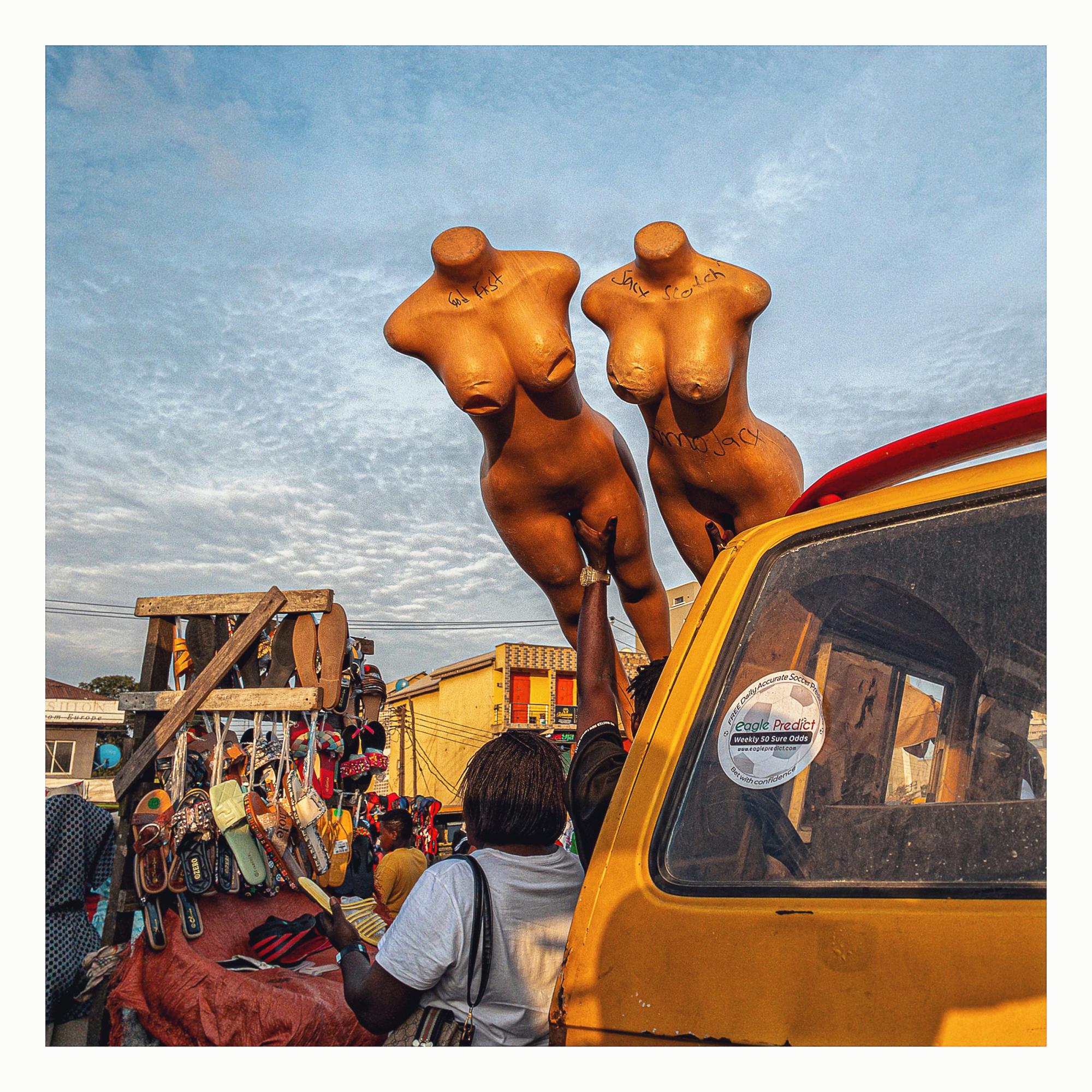Samuel Okocha
Freelance Journalist . Photographer . Audio + Visual Storyteller | Specialized in mobile, creative and non-fiction storytelling
LagosLivesOn: Two mannequins and the soul of Nigeria’s megacity
In the third instalment of our series, we explore how the cloth market reflects the city's diversity and dynamism
LAGOS - A cloth trader hoists two mannequins above his head, as he makes his way through a bustling street in Lagos, Nigeria's largest and most lively city. The mannequins, devoid of any clothing, stand out in the crowd of people wearing colourful outfits. They also symbolise the potential and variety of the cloth market, where one can find anything from traditional African fabrics to foreign fashion labels.
But the cloth market is not just a place to buy and sell garments; it is also a place where Lagosians express their identity and creativity, and where they face the challenges and opportunities of living in a megacity. The market is a microcosm of Lagos' culture and economy, where diversity, entrepreneurship, and innovation thrive, and where competition, congestion, and adaptation are inevitable.
Lagos is home to more than 20 million people, making it one of the most populous and fastest-growing cities in the world. It is also one of the most complex and contradictory, with stark inequalities, social tensions, and environmental problems. Yet, it is also one of the most vibrant and resilient, with a rich history, a cosmopolitan outlook, and a youthful energy.
The cloth market captures both the beauty and the beast of Lagos, where the old and the new, the local and the global, the formal and the informal, coexist and collide. It is a place where Lagos lives on.
I now live in Abuja, but I started this series to celebrate Lagos and its people. Stay tuned for the next post, where I share another image, as I explore some of the themes and issues that define Lagos and its people in this LagosLivesOn seies. Today is 3/7. Onward
LagosLivesOn: Two mannequins and the soul of Nigeria’s megacity
2,421

